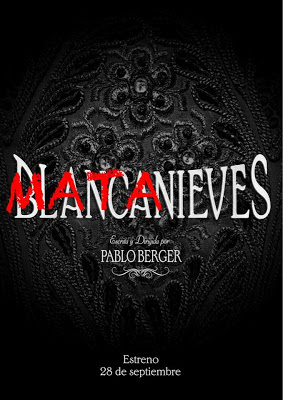Fiona
Apple cancela su gira por Sudamérica. El motivo es cuidar de un ser querido que
se muere: su perra Janet. Si la causa hubiese sido la enfermedad de un
familiar, un amigo humano o su pareja, la noticia no habría levantado tanto
asombro y revuelo, pero, para gran parte de la humanidad, se trata de “una simple
perra”. Tristemente, explicar el “vinculo mascotil” a alguien que nunca a
adorado a un ser de otra especie es como explicar matemáticamente lo que es
sentirse enamorado.
Aunque
la letter lleva días circulando por internet y ha dejado de ser trending
toppic, es tan sumamente bonita y emotiva que creo que puede tocar la fibra y
despertar la magia de la empatía interespecies mejor que 1000 campañas y artículos.
Y es que, como bien dijo Anatole France: "Hasta
que no hayas amado a un animal, parte de tu alma estará dormida”.
Os
dejo la carta en dos versiones. La original y, en el primer post, una
traducción horrible que he encontrado en la red.
"It's 6pm on Friday, and I'm writing to a few thousand friends I have not
met yet. I am writing to ask them to change our plans and meet a little while
later. Here's the thing.
I have a dog Janet, and she's been ill for almost two years now, as a
tumor has been idling in her chest, growing ever so slowly. She's almost 14
years old now.I got her when she was 4 months old. I was 21 then ,an adult officially
- and she was my child.
She is a pitbull, and was found in Echo Park, with a rope around her
neck, and bites all over her ears and face.
She was the one the dogfighters use to puff up the confidence of the
contenders.
She's almost 14 and I've never seen her start a fight ,or bite, or even
growl, so I can understand why they chose her for that awful role. She's a
pacifist.
Janet has been the most consistent relationship of my adult life, and
that is just a fact.
We've lived in numerous houses, and jumped a few make shift families, but
it's always really been the two of us.
She slept in bed with me, her head on the pillow, and she accepted my
hysterical, tearful face into her chest, with her paws around me, every time I
was heartbroken, or spirit-broken, or just lost, and as years went by, she let
me take the role of her child, as I fell asleep, with her chin resting above my
head.
She was under the piano when I wrote songs, barked any time I tried to
record anything, and she was in the studio with me all the time we recorded the
last album.
The last time I came back from tour, she was spry as ever, and she's
used to me being gone for a few weeks every 6 or 7 years.
She has Addison's Disease, which makes it dangerous for her to travel
since she needs regular injections of Cortisol, because she reacts to stress
and to excitement without the physiological tools which keep most of us from
literally panicking to death.Despite all of this, she’s effortlessly joyful and playful, and only stopped acting like a puppy about 3 years ago.
She's my best friend and my mother and my daughter, my benefactor, and
she's the one who taught me what love is.
I can't come to South America. Not now.
When I got back from the last leg of the US tour, there was a big, big
difference. She doesn't even want to go for walks anymore.
I know that she's not sad about aging or dying. Animals have a survival
instinct, but a sense of mortality and vanity, they do not. That’s why they are
so much more present than people.
But I know that she is coming close to point where she will stop being a
dog, and instead, be part of everything. She’ll be in the wind, and in the
soil, and the snow, and in me, wherever I go.
I just can't leave her now, please understand.
If I go away again, I’m afraid she'll die and I won't have the honor of
singing her to sleep, of escorting her out.
Sometimes it takes me 20 minutes to pick which socks to wear to bed. But this decision is instant.
These are the choices we make, which define us. I will not be the woman who puts her career ahead of love and
friendship. I am the woman who stays home and bakes Tilapia for my dearest, oldest
friend. And helps her be comfortable, and comforted, and safe, and important.
Many of us these days, we dread the death of a loved one. It is the ugly
truth of Life, that keeps us feeling terrified and alone. I wish we could also appreciate the time that lies right beside the end
of time.
I know that I will feel the most overwhelming knowledge of her, and of
her life and of my love for her, in the last moments. I need to do my damnedest to be there for that.
Because it will be the most beautiful, the most intense, the most
enriching experience of life I've ever known. When she dies.
So I am staying home, and I am listening to her snore and wheeze, and
reveling in the swampiest, most awful breath that ever emanated from an angel.
And I am asking for your blessing.
I'll be seeing you.
Love, Fiona"
*




































